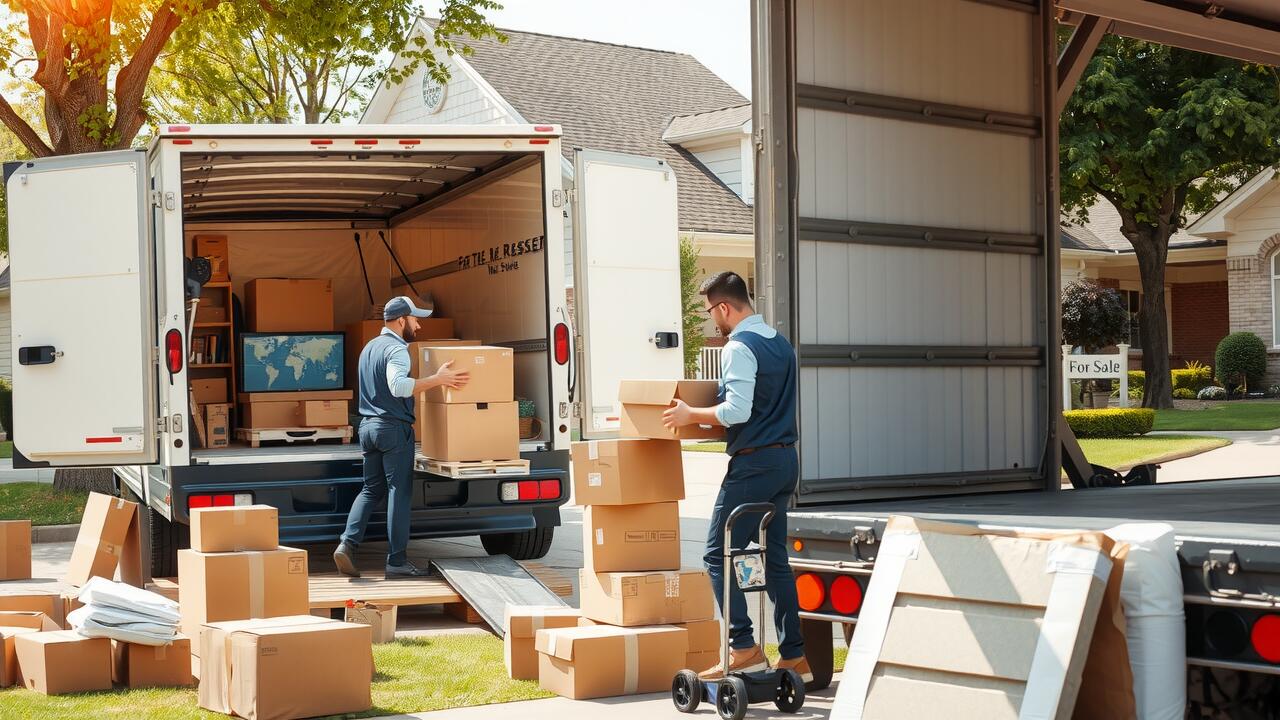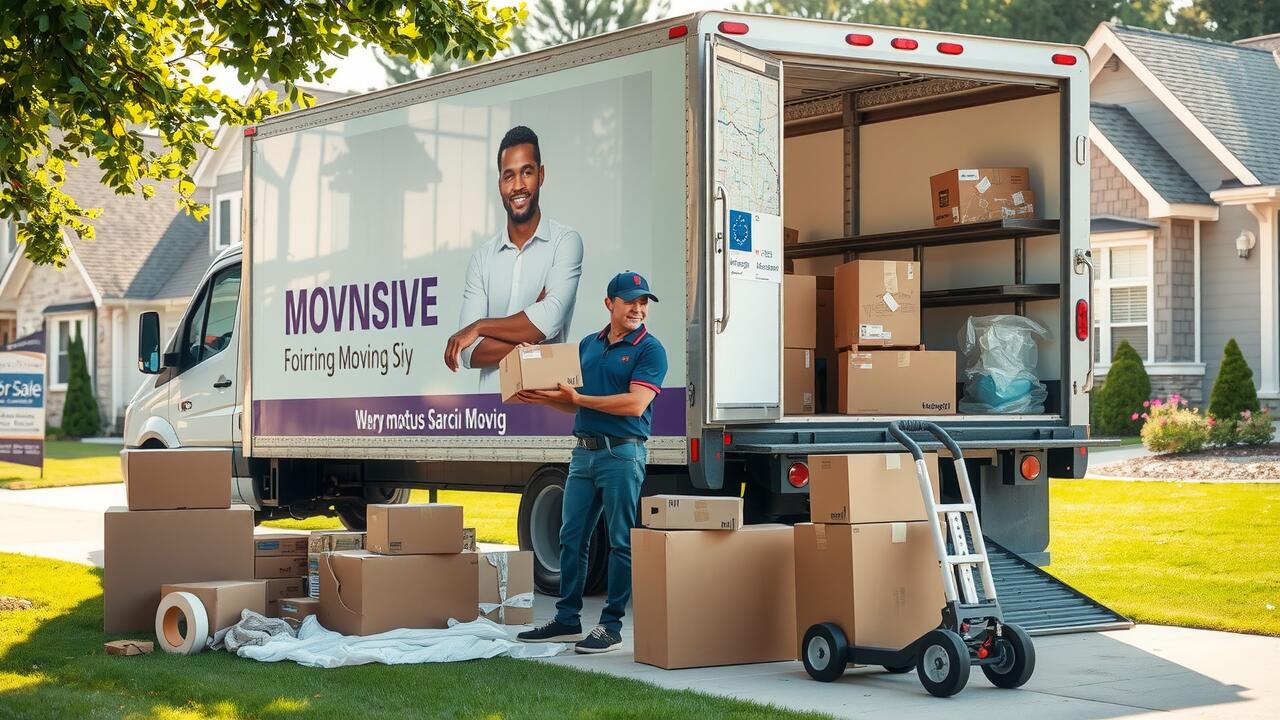
Table Of Contents
Evaluating the Risks Involved
When considering whether to move yourself or hire professional movers, it is important to evaluate the risks associated with each option. Self-moving can lead to various complications such as injury from lifting heavy objects, damage to personal belongings, or even vehicle accidents during transport. Many underestimate these potential hazards, which might result in unexpected costs or physical harm. Local and Long Distance Moving in Gainesville, Georgia, presents unique challenges that must be addressed, whether through proper planning or hiring skilled professionals.
On the other hand, opting for professional moving services can also come with its own set of risks. While movers have the expertise to handle tricky situations and heavy lifting, they can also encounter issues such as delays, miscommunication, or unexpected fees. Moreover, relying on a company’s reputation and quality of service is crucial, yet not all movers guarantee a hassle-free experience. It is essential to weigh these risks carefully when deciding on the best approach for your relocation.
Potential Issues with Self-Moving and Professional Services
Self-moving can appear to be a cost-effective choice, but it comes with its own set of challenges. The physical demands of packing up a household and transporting belongings can lead to exhaustion and potential injuries. Additionally, unforeseen issues such as equipment malfunctions or difficulties with loading and unloading can arise. These complications may add stress to an already hectic situation, negating any financial savings.
On the other hand, hiring professional movers often ensures a smoother process, yet it can lead to unexpected expenses. While many companies provide quotes, hidden fees for services like packing, specialty items, or additional labor can quickly escalate costs. Local and Long Distance Moving in Gainesville, Georgia, might seem straightforward, but it's crucial to thoroughly understand what is included in the service agreement to avoid surprises on moving day.
Transportation Logistics
When considering transportation logistics for a move, it’s essential to assess the specifics of your situation. Factors such as the distance to your new location, the amount of belongings, and available vehicles play a crucial role. Local and Long Distance Moving in Gainesville, Georgia, offers different challenges. For local moves, the time and effort spent on loading and unloading may be minimal, but you still need to factor in vehicle availability and the convenience of making multiple trips if necessary.
For long-distance moves, planning becomes increasingly complex. It’s not just about packing items; one must also consider costs related to vehicle rentals, fuel expenses, and potential overnight stays during the journey. Local and Long Distance Moving in Gainesville, Georgia, requires careful logistics to ensure that everything is accounted for without incurring excessive costs. Understanding these elements can help you make an informed decision between self-moving and hiring professionals.
How Each Option Handles Vehicle Rentals and Fuel Costs
When deciding between self-moving and hiring professional movers, understanding vehicle rental options is crucial. A self-move often requires renting a truck or trailer, which involves additional costs such as daily rental fees and any insurance options. Fuel expenses also come into play, with larger vehicles consuming more gas, especially during longer trips. For residents considering Local and Long Distance Moving in Gainesville, Georgia, these overall expenses can add up significantly.
On the other hand, professional moving services typically include transportation within their pricing structure. These companies generally use their own trucks, thus eliminating rental fees for the consumer. They handle logistics, including fuel costs, as part of the service. While this might appear more expensive upfront, the convenience of having a team manage transportation can sometimes outweigh the extra cost, particularly for long-distance moves that require careful planning and execution.
The Impact of Distance on Moving Costs
When assessing the impact of distance on moving costs, it is crucial to differentiate between local and long-distance moves. Local moves typically involve relocating within a specific radius, often ranging from 50 to 100 miles. These moves tend to be more straightforward and often cost less, as professional movers charge based on hourly rates and the amount of labor required. In contrast, long-distance moves require additional considerations, including fuel costs, time spent on the road, and potential lodging expenses for movers who need to travel overnight.
For residents in Gainesville, Georgia, the choice between local and long-distance moving can significantly influence overall expenses. If you are staying within the region, a local move may allow for more budget-friendly options. However, if your journey takes you across state lines or to a new city, the logistics involved can quickly escalate. It is essential to gather estimates from moving companies that specialize in both local and long-distance services to make an informed decision tailored to your specific situation.
Evaluating Local vs. Long Distance Moves
When planning a move, understanding the differences between local and long-distance options is crucial. Local moves typically involve relocating within a 50-mile radius and can be completed in a single day. Costs for local moves often include hourly labor rates and fuel fees, making it easier to estimate your total expenses. However, even short distances can present challenges such as traffic congestion or navigating tight city streets.
In contrast, long-distance moves require more detailed planning and can significantly affect your budget. These moves often encompass distances beyond 50 miles, requiring additional considerations like vehicle rentals, fuel costs, and possible overnight accommodations. Local and Long Distance Moving in Gainesville, Georgia, showcases the importance of considering different logistical aspects based on distance. Factors like time, effort, and the complexity of transporting belongings will determine which option might be more cost-effective for your specific situation.
FAQS
Is it generally cheaper to move yourself compared to hiring professional movers?
In many cases, moving yourself can be cheaper, as you can avoid labor costs associated with hiring movers. However, you should consider additional expenses such as vehicle rentals, fuel, and potential damage to your belongings.
What are some risks involved in self-moving?
Self-moving can involve risks such as injury from lifting heavy items, damage to your belongings during transport, and the possibility of underestimating the time and effort needed for a successful move.
How do transportation logistics differ between self-moving and using professional services?
Self-moving requires you to manage vehicle rentals and fuel costs, while professional movers handle transportation logistics for you, often including packing, loading, and unloading, which can simplify the process.
Does the distance of the move affect the overall cost?
Yes, the distance can significantly impact moving costs. Local moves may be less expensive and easier to manage yourself, while long-distance moves often require professional services due to the complexity and additional costs involved.
Are there hidden costs involved in self-moving?
Yes, there can be hidden costs such as insurance for your belongings, potential rental fees for moving equipment, and extra fuel charges. It’s important to evaluate all potential expenses before deciding to move yourself.
